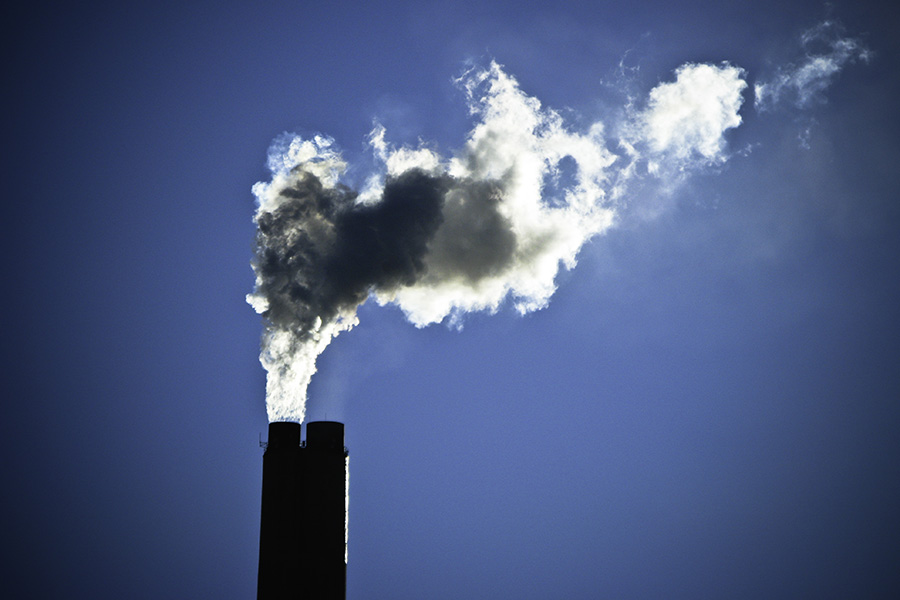It is dangerous not to respect your opponent. Never underestimate their capabilities. Last week, Secretary of Defense Pete Hegseth told our top officers, “No more climate change worship.” Following on President Trump’s baseless characterization of climate change as a “con job” at the United Nations, we need more voices setting the record straight. This is a gravely serious mischaracterization of a clear and present danger to the United States and our allies.
Human-caused climate change is not an article of faith. It is not an offshoot of a cult of personality. It is not a grift. Climate change is a well-understood and accelerating risk to our livelihoods, to security and the Creation. Responsible and serious people recognize the climate crisis as a fact, respect the situation’s gravity and organize responses that reduce its future impacts and make us safer today.
Scientists have known since the 1820s that the atmosphere traps heat. Humanity—primarily in industrialized and developed nations—has released heat-trapping carbon dioxide, methane, nitrous oxide, ozone and fluorinated gases into the atmosphere at an unprecedented rate. They come from fossil fuel energy, industry, transportation and buildings as well as agriculture, forestry and other land uses. That human influence has warmed the atmosphere more than 2 degrees Fahrenheit since 1850.
2024 was the hottest year on record, coming at the end of the hottest decade ever. In its “20th Annual Risk Report” published in 2025, the World Economic Forum ranked extreme weather and critical changes in Earth’s systems as the No. 1 and No. 2 most severe impacts for the global economy for the next 10 years. The Potsdam Institute estimates climate damages could reach $38 trillion annually by 2050. The United States experienced 27 billion-dollar-plus disasters in 2024, including wildfires, cyclones, floods and unprecedented heat waves and drought. Pennsylvanians know this. In recent years, record deluges killed at least six people in Bucks County, a heat wave closed 100 Philadelphia schools, while Canadian wildfire smoke made our skies like something from the apocalypse. The Center for Climate Integrity estimates Pennsylvania will spend $1 billion a year on climate impacts for the next 15 years.
None of the impacts surprises security analysts who have long recognized that climate change would threaten the United States and the world. The non-partisan RAND Corporation published a report in 1969 stating, “The inadvertent influences of man’s activity may eventually lead to catastrophic influences on global climate unless ways can be developed to compensate for undesired effects.” In 1977, a memo from Frank Press in the Office of Science and Technology warned President Carter, “The potential effect on the environment of a [rapid] climatic fluctuation…could be catastrophic.” Since 1990, the Naval War College, the Department of National Intelligence, National Research Council, and the Department of Defense have analyzed climate change as a risk. It has been charactered as a “threat multiplier” and a “hyperthreat.”
The Department of Defense has coordinated and collaborated with allies to operationalize our understanding of climate change. NATO’s “Climate Change and Security Impact Assessment” examined shared “strategic environment, military assets and installations, missions and operations, [and] its resilience and civil preparedness.” That assessment includes impacts on shared assets, the performance of submarine, naval helicopters and transport planes, how potential adversaries and strategic competitors are responding and the climate security impact of Russia’s unjust war against Ukraine. The NATO assessment includes a warning: “Malign actors seek to erode the public pressure and political will for ambitious climate action, as well as to divert focus and resources away from climate change adaptation and mitigation efforts.”
Let’s be clear. The military has every reason to worry about the drivers and impacts of the human-caused climate crisis. It endangers the freedom, security and prosperity of Americans and changes the theaters in which the military operates. Hegseth and Trump should recognize, respect and respond to climate change accordingly. Failing to do so is a dereliction of duty.
Dr. Peter Buck is the co-director of Penn State’s Local Climate Action Program. His opinions are his own.



